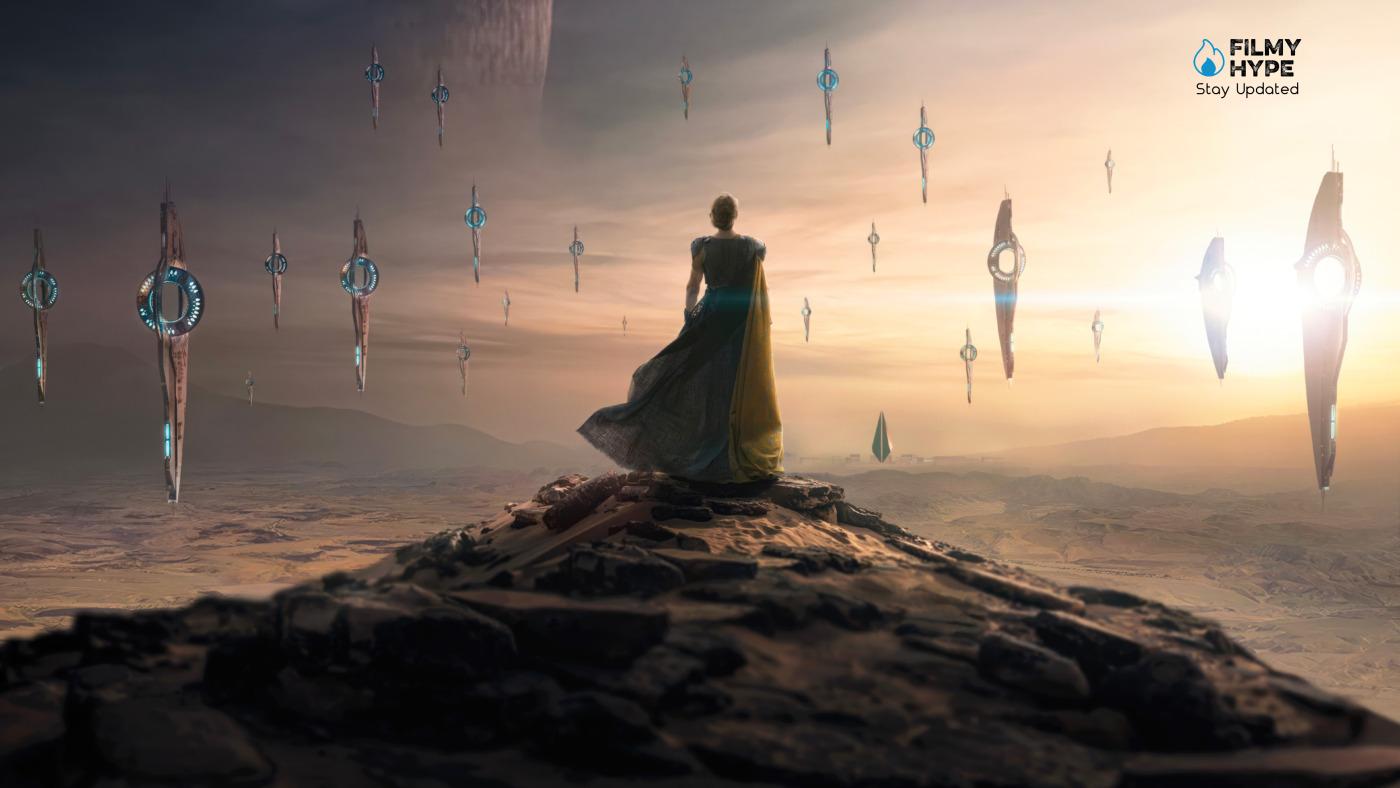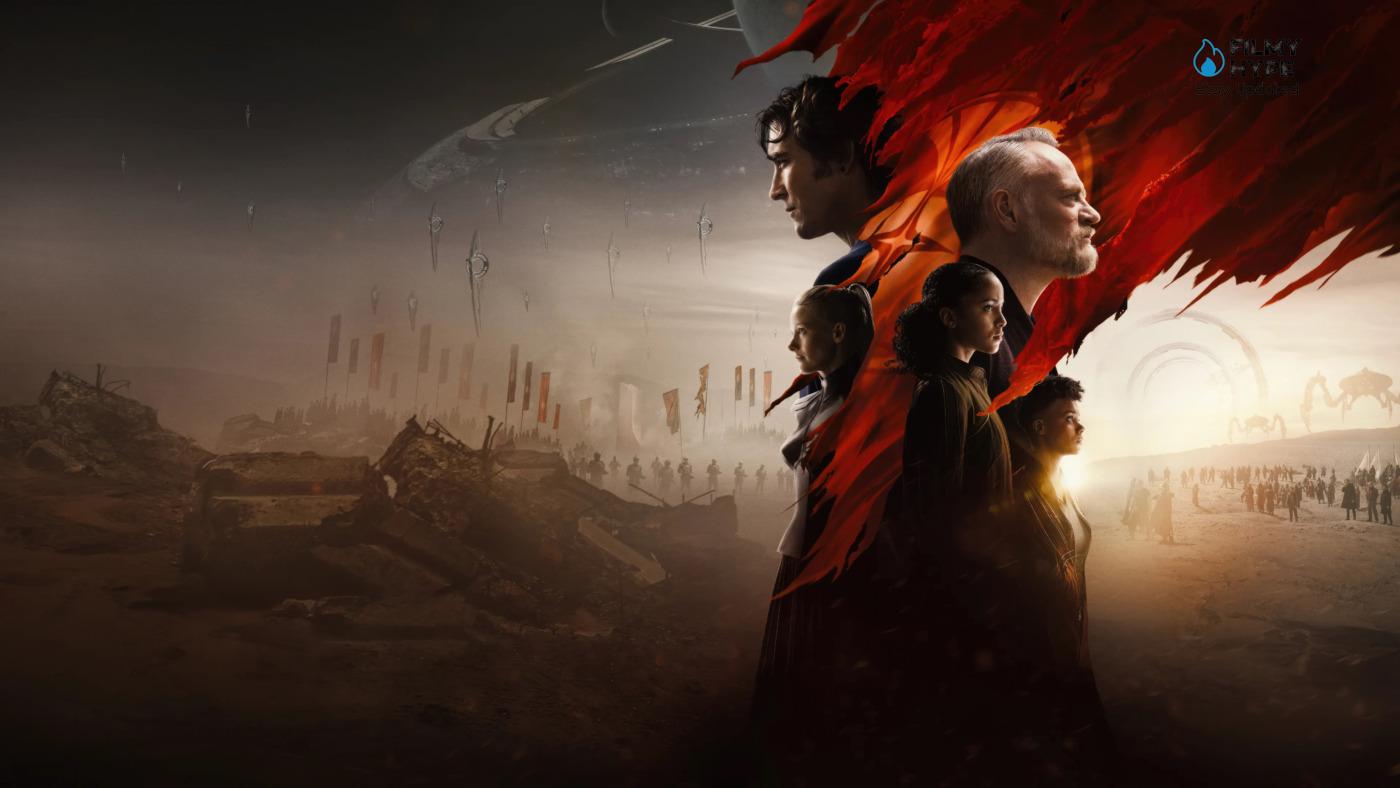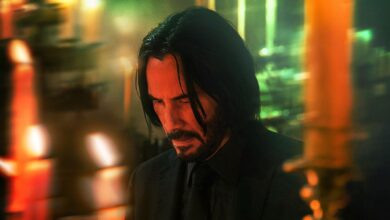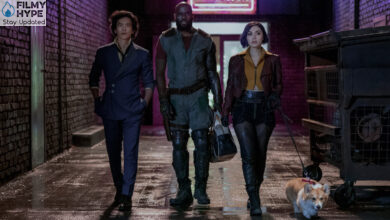Foundation Season 2: What to Expect from Asimov’s Science Fiction on Apple TV Plus
Foundation Season 2 is set to premiere on Apple Tv+ this month. It kept waiting for years, piquing the curiosity of Asimov’s fans, eventually enriching the Apple TV Plus schedule. Curiously, the debut of the series inspired by the Foundation cycle, Foundation, debuted at a time when the television landscape found itself orphaned by great series of the genre, after the conclusion of The Expanse, and only partially supported by the return of Dune to the big screen. The migration dynamics of great literary sagas towards the serial dimension animates a heated debate among enthusiasts, who increasingly criticize how serial productions betray, in their opinion, the original spirit of much-loved works. At this juncture, the choice of Apple’s streaming service to bring Hari Seldon and the galaxy created by Asimov to life was a real challenge. Either because contemporary science fiction, especially cinematographic, owes a great debt to the American novelist, or because the curiosity of having a less action-packed and calmer sci-fi with relaxed narrative tempos always represents a pleasant alternative to hyperdynamic stories.

Foundation: Has Apple TV Respected Asimov’s Work?
Serial science fiction has seen in series such as Battlestar Galactica and The Expanse examples of how the construction of a solid and well-groomed social context is an excellent narrative tool, but with Foundation we wanted to try to take this detail to a higher level. The real threat was losing focus on the essential features of Asimov’s saga, which by its nature hid pitfalls that could become triggers for ruthless criticism from purist fans of the writer, who will certainly have a lot to say about the adaptation presented by Apple. This is why there can’t be just one way of dealing with the impact of the Foundation, but three different points of view, the ones that constantly animate discussions whenever a narrative concept migrates from any medium to the serial or cinematographic world.
The Purist: Asimov’s Betrayal?
The first series of Foundation, despite a convincing architectural reconstruction of the Empire known in Asimov’s books, showed some rather marked inaccuracies within the development of Foundation. As we learned by reading the Foundation Cycle, Asimov himself worked on this saga in an atypical way, returning in later years to write prequel novels, trying to set up a continuity that linked all of his production. The perfect way to set up a narrative line that starts from the Robot Cycle ended up with the Foundation Cycle playing with the player through a system of recalls and reconstruction of events that have become legends over the centuries.
The Foundation seems to have completely forgotten this aspect; indeed it completely nullifies it. Within the episodes, there are clear positions that cut important moments of the Asimovian chronology out of the continuity of the series, such as declining the absence of robots making it the consequence of a war with humans, an aspect that has more relevance to the Butlerian Jihad of Dune than with Asimov’s work, which has always tended to break down the Frankenstein Complex. Compelling chapters such as the adventure of Hari Seldon and Dors Venabili in Mycogen are therefore completely thwarted, accompanied by a narrative revision that penalizes the essential dynamics of the development of Asimov’s characters.
Throughout this first season, the central relationships of Asimov’s narrative dynamic are constantly rewritten and adapted to a story that progressively moves away from the strong points of its literary counterpart. From the absence of Dors Venabili to the development of loves totally absent in the original and here rendered tools for building dynamics that often oppose the original concept, Foundation shows that it has little respect for Asimov’s work, even distorting the soul of personages.
Jarred Harris is an aging Hari Seldon, disillusioned and ready to deceive in the name of his supposed ‘greater good’. The enhancement of his sacrifices and his conception of psychohistory, a driving element of the Cycle of Foundations, is lacking, preferring to show him as a Machiavellian man, sometimes annoying and opinionated in his standing at the helm of a revolution, rather than a Foundation that wants to preserve the humanity. Where Seldon was concerned about starting a project of salvation, even collaborating with the imperial throne, in the Foundation he is made into a revolutionary, in open contrast to the Cleon dynasty.
To make this separation from Asimov’s original even more marked is the choice to make the imperial dynasty a genetic trinity, made up of clones of the original Cleon. A trio is presented as an almost divine entity, giving life to a subplot dedicated to spirituality, a concept absent in Asimov, and even comes to invest a figure like Eto Demerzel. The most varied character in his essence, if you will, considering that within Asimov’s narrative his being male and his figure of the rigid prime minister of the imperial court had a precise and functional meaning to the evolution of the story. In the Foundation, the version proposed to us is detached and without connection with the original, yet another flaw of this series.
It’s not enough to create a compelling visual system that lets some of the essential features of Asimov’s imagination emerge. If it is true that the American novelist did not go too far in providing details of the settings, it must be said that for television production, this translates into a greedy occasion, which allows you to move freely in giving shape to a future galaxy that can show its own identity. But this visual marvel cannot make us forget the total neglect in preserving the authentic spirit of Asimov’s work, which sees an incomprehensible use of space or the bending of the characters to a dynamic of events that deviates too markedly from the dialectic of Asimov, from his concepts. Foundation is a disappointment, it lacks focus in grasping the essential aspects of Asimov’s great literary work, preferring to embrace various narrative suggestions that have little to do with one of the great classics of literary space opera. Asimov’s dialectic had its caliber and precise connotation, daughter of the author’s ideas and his vision of the world, distorting it in this way leads the AppleTV+ series to undeservedly bear the name of Foundation.
The Asimov Enthusiast: Bringing the Foundations Cycle to the Modern World
Transposing the Foundation Cycle faithfully was almost impossible. The nature of Asimov’s work does not offer agile entry points from which to start a serial narrative, considering how the American novelist has created a strong continuity between the different cycles that make up his work. As disrespectful as it may seem to Asimov’s purist fans, the choice made by Goyer and the production of Foundation has its legitimacy, it is a necessary move to give life to a serial adaptation of one of the pillars of the literary space opera tradition.
A complex story characterized by an often convoluted and complex narration, which would not have suited the new grammar of contemporary seriality. Series like The Expanse and Battlestar Galactica have shown how it is possible to create future universes that allow for an articulated and solid narrative, and with source material like the Foundation Cycle these lessons allow us to develop a future universe full of nuances. A modernization of Asimov’s original concept inevitably requires making profound changes, which captures the taste of a large audience accustomed to a compelling narrative, based on the grammar of television seriality. One could dispute the idea of the imperial trinity, just as the presence of the religious element is a very distant addition from Asimov’s vision, but the presence of well-known names and the centrality of their role seems to show a certain relevance to the original story, however, adapted to new narrative canons.

Sex changes in some characters, new sentimental relationships, and invented kinships may seem like a stretch of this adaptation, but they are nevertheless brought back within boundaries that keep Asimov’s general idea in mind. The viewer’s familiarity with the literary work makes it possible to bridge some unhappy narrative passages, especially about psychohistory. Although cited as the narrative thrust of the series, the science created by Hari Seldon is vaguely hinted at, making it almost a mystical doctrine that the inhabitants of Terminus rely on as a faith.
In this sense, the scientific value present in the books is lost, but this decline of psychohistory goes well with the new characteristics imposed by this adaptation. The presence of the powers of Salvor Hardin and Gaal Dornick seems to push for a presence of mental abilities that in Asimov’s work were reformed in the Mule, present in future eras concerning their own. A concession that is granted to the production of AppleTV+, which inserts it within a process of rejuvenation of the original concept, adapting the salient features of Asimovi’s narrative to a new audience, that of seriality.
On closer inspection, David S. Goyer’s operation is an interesting experiment, namely the presentation of social concepts that fascinate him to a new audience, a son of a different era than the one in which Asimov made his novels. An intriguing narrative intent, which traces the evolution of sci-fi fiction, to the point that Asimov’s essential concepts are not distorted, but brought into a modern perspective, allowing suggestions to emerge in the social fabric of the Empire that is the mirror of the modern world, entrusting the characters with the role of mirror of contemporary thoughts and concerns.
From this point of view, the changes made to some protagonists, both in terms of sex and their function in the story, take on an understandable validity in this work of renewal. Seldon himself is no longer a ‘father of humanity’ concerned with preserving the knowledge of mankind, but transforms his Foundation into a revolutionary tool, assuming a new value concerning the image that Asimov gave us in his works. It was therefore inevitable to give space to a less bombastic and more immediate dialectic, which included contemporary serial dialectic, which requires a certain concession to action, usually absent in Asimov.
The Foundation is not a slavish proposition of the complex future tapestry imagined by Asimov in his books but presents itself as a pleasant adaptation that brings the essential features of the Foundations cycle into modern seriality. This a progressive characterization that at the end of the ten episodes of this first season of Foundation completes a definitive detachment from the classic canon of the Asimov cycle, projecting itself toward new, more contemporary directions.
A New Universe: the Discovery of the Foundation
Foundation is a sci-fi series with a high budget that shows that it has learned some lessons from the great exponents of seriality. David S. Goyer, drawing inspiration from a series of novels, portrayed on Apple TV+ a future galaxy in which humanity seems inexorably heading towards entropy, condemned by a generation of clone emperors who misunderstand what the real problems of a domain that spans millions of worlds.
The birth of science, psychohistory, capable of elaborating highly probable future social models becomes a threat to power, a danger that sees in its creator, Hari Seldon (Jared Harris), a potential popular leader to oppose. But instead of making him a martyr, eliminating him physically, the three emperors decide to exile him to the ends of the universe, on Terminus, where he is ironically allowed to develop his science. If he is indeed able to accomplish what he claims, then the Empire will know where to find a weapon of crowd control, if not, Seldon’s remoteness from the socio-political center of the Empire will facilitate his oblivion.
This contrast between despotic power and the search for another way is one of the fundamental traits of the Foundation. Dualism is an integral part of this series, which offers a wealth of contrasts, such as science and faith, which animate the tale. To bring this dynamic to life, numerous characters are shown, a host of faces and personalities which, in some moments, risk confusing the less attentive spectator. Faithful to the concept of space opera the Foundation takes its time to define this future universe, not only with an undoubted visual spectacle, made up of barren and inhospitable planets in opposition to the teeming capital world, but also by allowing each character to evolve, albeit in a rather rudimentary way.
Apart from rare exceptions, such as Salvor Hardin, this plethora of characters often gets entangled in a narrative too focused on where to lead the viewer, forgetting how to take him. This first season of Foundation seems to forget, in some points, to give all the right tools to better understand the basis of this universe, asking for a big leap of faith in some aspects, such as the role of infallible rebel of Seldon, an almost prophetic character, beautifully rendered by Jared Harris, but which in its contained presence risks being more of a deus ex machina than a supporting element of the narrative.
To have greater relevance, ironically, are the alleged villains of the story, i.e. the imperial trio. Lee Pace (Brother Day), Terrence Mann (Brother Sunset), and Cassian Bilton (Brother Dawn) are a convincing allegory of the different ages of a man, showing his weaknesses and how the weight of the years can lead to a different vision of the universe. Perfectly inserted in this dynamic Eto Demerzel (Laura Byrn), prime minister and confidant of the Cleons, a figure cloaked in a dramatic veil that is slowly developed, up to a scene of heartbreaking humanity in the final episode, highly metaphorical and emotionally overwhelming.
All these components, however, seem purely sketchy, and poorly defined. If on the one hand, this is a first season this is understandable, on the other hand considering the wealth of themes and suggestions staged one would have expected greater care in the management of narrative times, which are weighed down in the first part, which is all too preparatory, but which is redeemed by a final part that projects the series towards a promising future.
Where Foundation does not fail to fascinate right from the start is in the visual layout. The future galaxy is portrayed artfully, defining the opulence of the Imperial court by contrasting it with the rest of the galaxy. A detachment that is enhanced not only by showing the different worlds but also by portraying different sectors of Trantor itself, the capital world. A well-focused attention, in its simplicity, prefers to point to a Spartan vision, especially for the peripheral worlds, and values the challenge of survival as a choice in opposition to the decadent opulence of the central worlds.
Foundation, despite all its limitations, is a rich, promising sci-fi series, but still in search of its balance. Excellent in showing the inner growth of some characters, primarily Brother Day, it loses clarity in the definition of the horizontal plot, failing to provide solid points on which the viewer can develop his understanding. The already confirmed second season could therefore become the turning point of this series, which brought the space opera back to the small screen.






